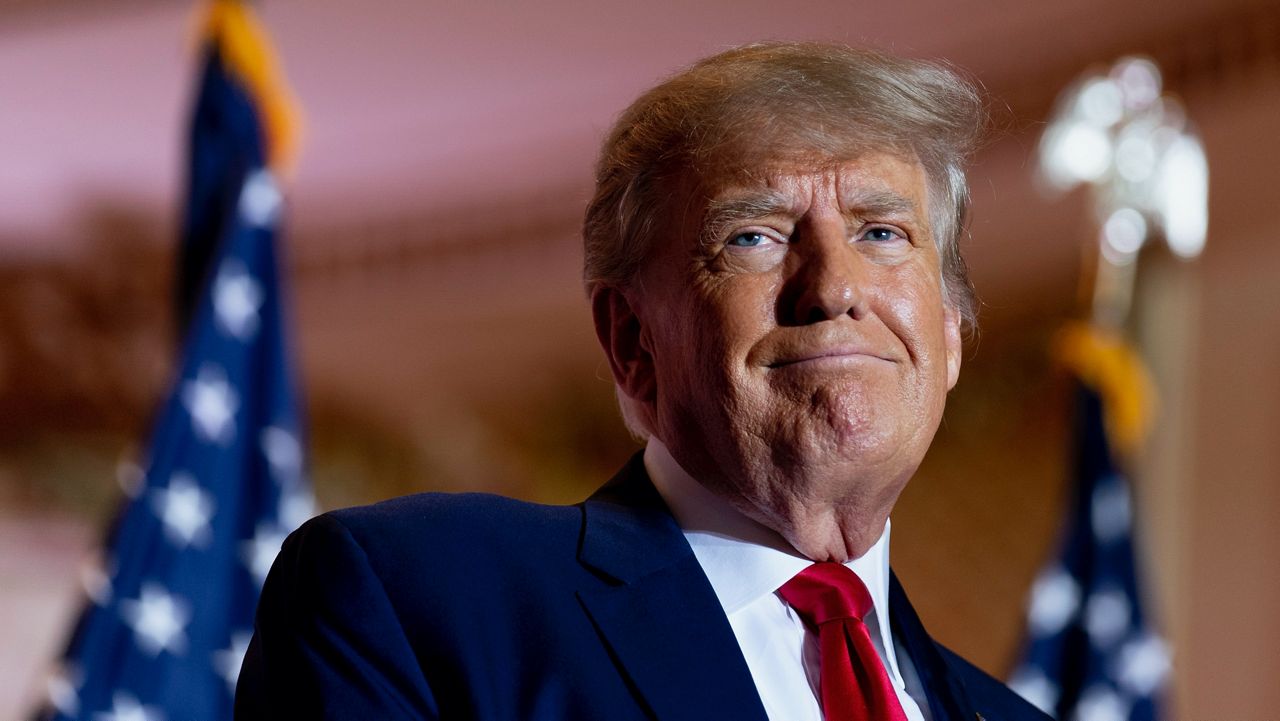Federal prosecutors investigating the potential mishandling of classified documents at former President Donald Trump's Florida estate will be able to again question a Trump lawyer before a grand jury, a judge ruled Friday in a sealed order.
What You Need To Know
- Federal prosecutors investigating the potential mishandling of classified documents at former President Donald Trump's Florida estate will be able to again question a Trump lawyer before a grand jury, a judge ruled Friday in a sealed order.
- The order will require M. Evan Corcoran to answer additional questions as prosecutors pursue their investigation into classified documents found at Mar-a-Lago as well as potential efforts to obstruct that probe
- Corcoran had already appeared weeks ago before the federal grand jury in Washington investigating the Mar-a-Lago matter, but he had invoked attorney-client privilege in declining to answer certain questions
- Prosecutors can get around that privilege if they can convince a judge that the communications they seek answers about involved furtherance of a crime — a principle known as the crime-fraud exception
The order will require M. Evan Corcoran to answer additional questions as prosecutors pursue their investigation into classified documents found at Mar-a-Lago as well as potential efforts to obstruct that probe. The order was described by a person familiar with it, who was not authorized to discuss a sealed proceeding and spoke to The Associated Press on the condition of anonymity.
The precise scope of the order, which is expected to be appealed, was not immediately clear. Neither Corcoran nor his lawyer returned messages seeking comment, and a spokesman for special counsel Jack Smith, who is leading the investigation, also did not respond to an email about the order.
A Trump spokesman said the Trump team would “fight the Department of Justice on this front and all others that jeopardize fundamental American rights and values.”
Corcoran had already appeared weeks ago before the federal grand jury in Washington investigating the Mar-a-Lago matter, but he had invoked attorney-client privilege in declining to answer certain questions. That privilege protects lawyers from being forced to share with prosecutors details of the conversations they have with clients.
Prosecutors can get around that privilege if they can convince a judge that the communications they seek answers about involved furtherance of a crime — a principle known as the crime-fraud exception. The Justice Department invoked that exception in this case, arguing to Beryl Howell, the outgoing chief judge of the federal court in Washington, D.C., that more testimony was needed.
Howell issued her order granting at least some additional testimony before the end of her tenure Friday as chief judge. She is being replaced as chief judge by James “Jeb” Boasberg, a fellow Obama appointee who has served on the federal bench since 2011.
Corcoran is regarded as relevant to the investigation in part because last year he drafted a statement to the Justice Department asserting that a “diligent search” for classified documents had been conducted at Mar-a-Lago in response to a subpoena. Months later, though, FBI agents searched the home with a warrant and found roughly 100 additional documents with classified markings.
The Justice Department is investigating whether Trump or anyone in his orbit obstructed its efforts to recover all the classified documents, which included top-secret material, from his home.
As chief judge, Boasberg will have oversight of federal grand juries, including ones handling Trump matters, in the courthouse and will preside over sealed disputes like the Corcoran one.
Separately, former Vice President Mike Pence has said he will challenge a grand jury subpoena that seeks to compel him to testify in the special counsel's Jan 6. investigation. Pence has argued that because he was serving in his role as president of the Senate on Jan. 6, as he presided over a joint session of Congress to certify the election results, he is protected from being forced to address his actions under the Constitution’s “speech-or-debate” clause that shields members of Congress.
It is not clear how that disagreement will end.



